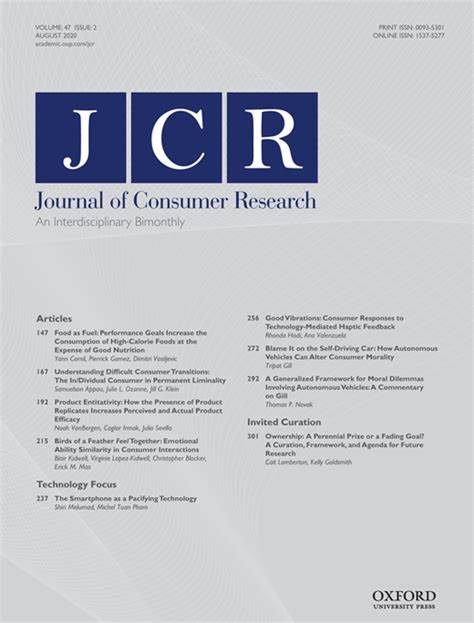Why Online Consumption Communities Brutalize
IF 6.4
1区 管理学
Q1 BUSINESS
引用次数: 0
Abstract
Consumers who socialize in online consumption communities sometimes become alarmingly hostile, toxic, and otherwise verbally violent toward one another—a phenomenon known in sociology as brutalization. Research indicates that short-lived, situational outbursts of verbal violence—such as gross insults, harassment, or trolling—are common in online consumption contexts. However, it does not explain why such behaviors sometimes become endemic, turning entire communities into toxic social spaces. To address this question, the authors studied 18 years of interactions in an online electronic dance music community. Their interpretive analysis reveals three constellations of interacting, mutually reinforcing, forms of direct, structural, and cultural violence—sadistic entertainment, clan warfare, and popular justice—that fuel community brutalization in distinct ways. This article introduces these brutalization constellations, substantiates them with empirical data, and discusses their implications for theories of violence in consumption communities as well as the wider social media sphere.网络消费社区为何残酷化
在网络消费社区中社交的消费者有时会对彼此产生令人震惊的敌意、毒害和言语暴力--这种现象在社会学中被称为 "野蛮化"。研究表明,在网络消费环境中,短暂的、情境性的语言暴力爆发--如粗暴侮辱、骚扰或嘲弄--很常见。然而,这并不能解释为什么此类行为有时会成为流行病,将整个社区变成有毒的社交空间。为了解决这个问题,作者研究了一个在线电子舞曲社区 18 年来的互动情况。他们的解释性分析揭示了三种相互作用、相辅相成的直接暴力、结构暴力和文化暴力形式--悲情娱乐、宗族战争和大众正义,它们以不同的方式助长了社区的残暴化。本文介绍了这些残暴化组合,用实证数据证实了它们,并讨论了它们对消费社区以及更广泛的社交媒体领域暴力理论的影响。
本文章由计算机程序翻译,如有差异,请以英文原文为准。
求助全文
约1分钟内获得全文
求助全文
来源期刊

Journal of Consumer Research
BUSINESS-
CiteScore
12.00
自引率
9.70%
发文量
53
期刊介绍:
Journal of Consumer Research, established in 1974, is a reputable journal that publishes high-quality empirical, theoretical, and methodological papers on a wide range of consumer research topics. The primary objective of JCR is to contribute to the advancement of understanding consumer behavior and the practice of consumer research.
To be considered for publication in JCR, a paper must make a significant contribution to the existing body of knowledge in consumer research. It should aim to build upon, deepen, or challenge previous studies in the field of consumption, while providing both conceptual and empirical evidence to support its findings.
JCR prioritizes multidisciplinary perspectives, encouraging contributions from various disciplines, methodological approaches, theoretical frameworks, and substantive problem areas. The journal aims to cater to a diverse readership base by welcoming articles derived from different orientations and paradigms.
Overall, JCR is a valuable platform for scholars and researchers to share their work and contribute to the advancement of consumer research.
 求助内容:
求助内容: 应助结果提醒方式:
应助结果提醒方式:


